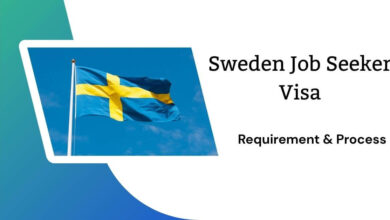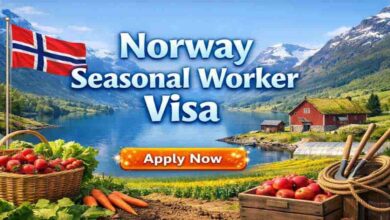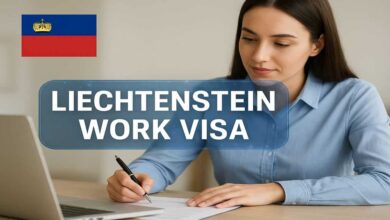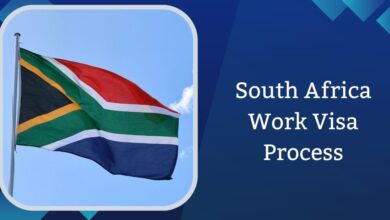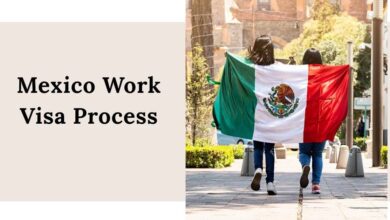Netherlands Residence Permit for Orientation Year 2026
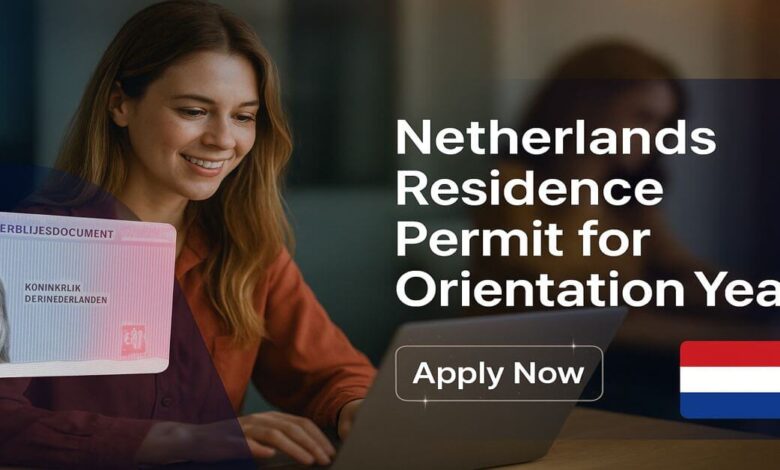
The Netherlands Residence Permit for Orientation Year 2026 is a fantastic option for international researchers, PhD holders, and graduates who wish to remain and work in the Netherlands after finishing their studies. Changes to eligibility standards, application processes, and essential requirements have been announced by the Dutch Immigration and Naturalization Service (IND).
Everything you need to know about these revised visa rules and how to submit a successful application will be covered in this post.
What is the Orientation Year Dutch Residence Permit?
Foreign researchers and graduates are permitted to remain in the Netherlands for one (1) year in order to find work or launch a business under the Residence Permit for Orientation Year. There is a work permit exemption during this time, so you can work without needing a separate work visa. Employers who hire someone on this visa do not need to obtain a work permit.
Read Also: Netherlands Highly Skilled Migrant VISA With Family
New Eligibility Criteria:
In order to accommodate more overseas researchers and students, the Immigration and Naturalization Service (IND) updated its eligibility rules. The most recent requirements you must fulfill are shown below:
1. General Requirements
- a current passport free of violations.
- No danger to national security or public order.
- Depending on nationality, there may be exemptions from the requirement for a tuberculosis test (TB test).
2. Educational and Research Qualifications
Before applying, candidates must have finished their coursework or research within the previous three years. Among the qualifying categories are:
- an undergraduate, graduate, or doctoral degree from a Dutch university or a comparable overseas school.
- a minimum 10-month post-master’s program in the Netherlands.
- a Bachelor’s degree from Erasmus Mundus.
- Study completion under Dutch development cooperation policy initiatives.
- carrying out scientific research in the Netherlands as a highly qualified immigrant or in accordance with EU Directive (2016/801).
- a master’s or doctoral degree from a foreign university accepted by Dutch immigration regulations.
3. For International Graduates Applying from Abroad
- A minimum IELTS score of 6.0 or an equivalent TOEFL/PTE score is required for English proficiency.
- The degree must have come from an institution where the main language of instruction was either Dutch or English.
- a document demonstrating eligibility for Dutch or foreign civic integration under the Dutch Civic Integration Act’s Article 4(1)(b).
4. Restrictions
- Eligible applicants are those who have previously held an Orientation Year Permit for the same research type or study level.
What Is the Orientation Year Visa Netherlands?
The Orientation Year Visa (Zoekjaar Visa) is a residence permit granted to:
- Non-EU/EEA international students who graduate from Dutch or top-ranked global universities
- Researchers or PhD graduates
- Highly educated individuals looking to explore work opportunities in the Netherlands
The visa allows you to:
- Live in the Netherlands for 12 months
- Work freely without needing a separate work permit (TWV)
- Initialize your job search as a Netherlands graduate
- Apply for jobs, internships, or freelance work
- Transition into a long-term residence permit or highly skilled migrant visa
Highly Educated Orientation Year Permit:
To be eligible for the highly educated orientation year permit, you must meet the following requirements:
- Have completed a bachelor’s, master’s, or PhD in the Netherlands within the past 3 years
- OR hold a degree from a top 200 university worldwide (as ranked in the Times Higher Education, QS, or ARWU rankings)
- OR have completed a scientific research project in the Netherlands
This permit is designed to help highly educated migrants explore opportunities before committing to long-term employment or applying for another residence status.
MVV Orientation Year Application:
The MVV (Machtiging tot Voorlopig Verblijf) is a long-stay visa that some applicants need to enter the Netherlands before applying for a residence permit.
You’ll need an MVV if:
- You are applying from a country that requires it
- You are not currently residing in the Netherlands legally
Application Steps:
- Submit your MVV and orientation year application together to the IND (Immigration and Naturalisation Service)
- Wait for a decision (typically 90 days max)
- Collect your MVV from the Dutch embassy
- Travel to the Netherlands and collect your residence card
Transition to a Highly Skilled Migrant Permit:
Once you find a job during your orientation year, you can easily transition to a highly skilled migrant permit—a preferred residence permit for international professionals in the Netherlands.
Key Requirements:
- Job offer from a recognized sponsor/employer
- Minimum gross salary threshold (varies by age and sector)
- Employment contract matching your skills and education
Many employers are familiar with this process and value graduates who have completed the orientation year program.
Dutch Work Permit After Study:
After completing your studies or orientation year, you have several pathways to get a Dutch work permit after study, such as:
- Highly skilled migrant permit
- Startup visa (for entrepreneurs and innovators)
- Intra-corporate transfer
- Self-employment residence permit
The orientation year is often used as a bridge between graduation and one of these more permanent permits.
Initialize Your Job Search in the Netherlands as a Graduate:
With your orientation year visa, you can initialize your job search in the Netherlands immediately. Make use of:
- University career centers
- LinkedIn networking and Dutch job portals (e.g., Indeed.nl, Glassdoor, AcademicTransfer)
- Career fairs and recruitment events
- Internship and graduate trainee programs
Don’t forget to optimize your CV according to Dutch standards and, if possible, learn basic Dutch to increase your competitiveness.
IND Orientation Year Guidelines:
The IND orientation year guidelines ensure that you stay legally compliant during your residence period. Here are a few important rules:
- You can work in any job or industry without employer sponsorship
- You must have sufficient financial resources for your stay
- The permit is valid for 12 consecutive months (non-renewable)
- You must leave the country or transition to another permit before it expires
Visit the official IND website for updated documents, forms, and fee information.
Application Process:
The application procedure has been streamlined by the Dutch Immigration and Naturalization Service (IND) to facilitate quicker approvals and easier submissions. To apply, take these actions:
1. Submit an Online Application
- If you are in the Netherlands, apply online through the IND portal.
- If you are not in the Netherlands, you should apply at the Dutch embassy or consulate that is closest to you.
2. Required Documents
Ensure you have the following:
- Valid passport (plus previous residence permits, if applicable).
- Diploma or degree certificate from a recognized university.
- Proof of residence in the Netherlands (if applicable).
- Financial proof (bank statements or a sponsorship letter confirming financial stability).
- Health insurance certificate covering your stay in the Netherlands.
- Proof of academic or research completion (transcripts, thesis approval, or research participation letter).
3. Processing Time & Fees
- Application Fee: €243
- Processing Time: Up to 90 days from submission.
- Once approved: A residency card that permits you to remain and work in the Netherlands for a maximum of one year will be issued to you.
Validity and Work Rights:
Validity: The Orientation Year Permit has a one-year expiration date and cannot be renewed.
Work Rights:
- During this time, you are free to work in any industry.
- There is no need for a work permit or employer sponsorship.
Pathways After the Orientation Year:
- You can switch to a Highly Skilled Migrant Visa if you land a permanent job as a highly skilled immigrant.
- Before the end of your orientation year, you must apply for an Entrepreneur Visa if you launch a business.
Conclusion:
International researchers and graduates have a great opportunity to investigate job opportunities in the Netherlands with the Dutch Orientation Year Residence Permit. In 2026, skilled workers will find it easier to remain and work in the nation thanks to revised eligibility requirements and a streamlined application process. This visa provides a solid basis for long-term residency and professional advancement in the Netherlands, regardless of your goals whether they be to launch a business or find work as a highly skilled migrant.
Frequently Asked Questions:
What is the Dutch Orientation Year Residence Permit?
International researchers and graduates can stay and work in the Netherlands for a year with this permit, which eliminates the need for a separate work visa.
Do I need a work permit under this visa?
No, a work permit is not required. Employers do not need sponsorship to hire you.
